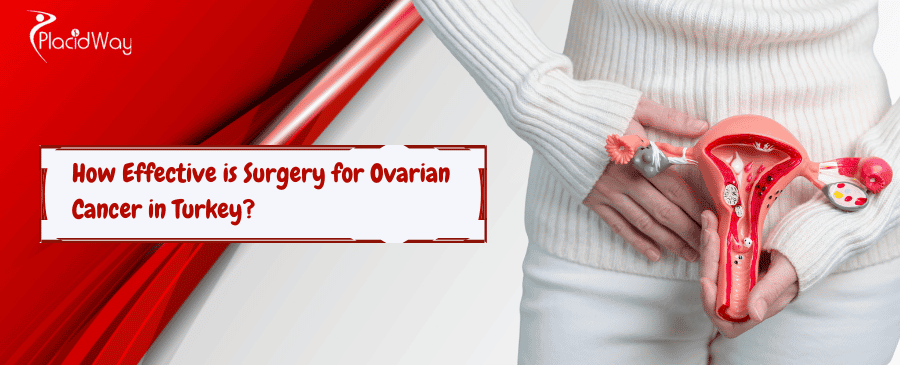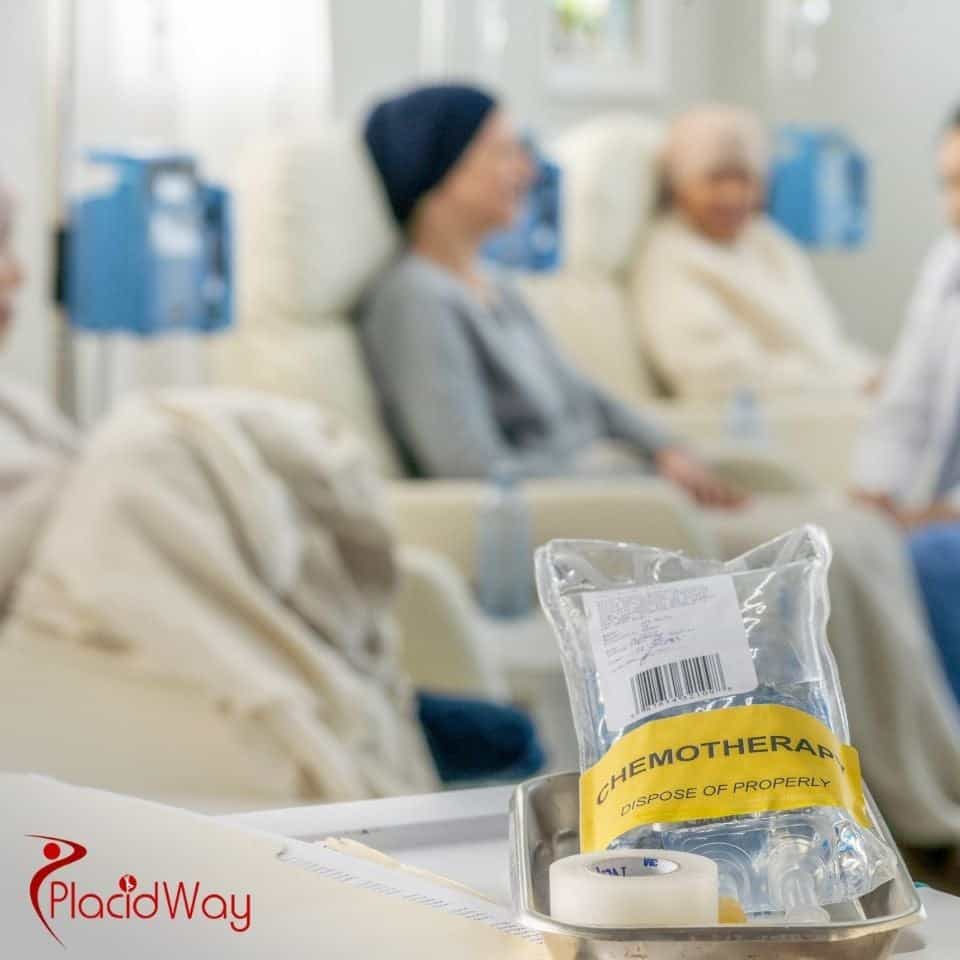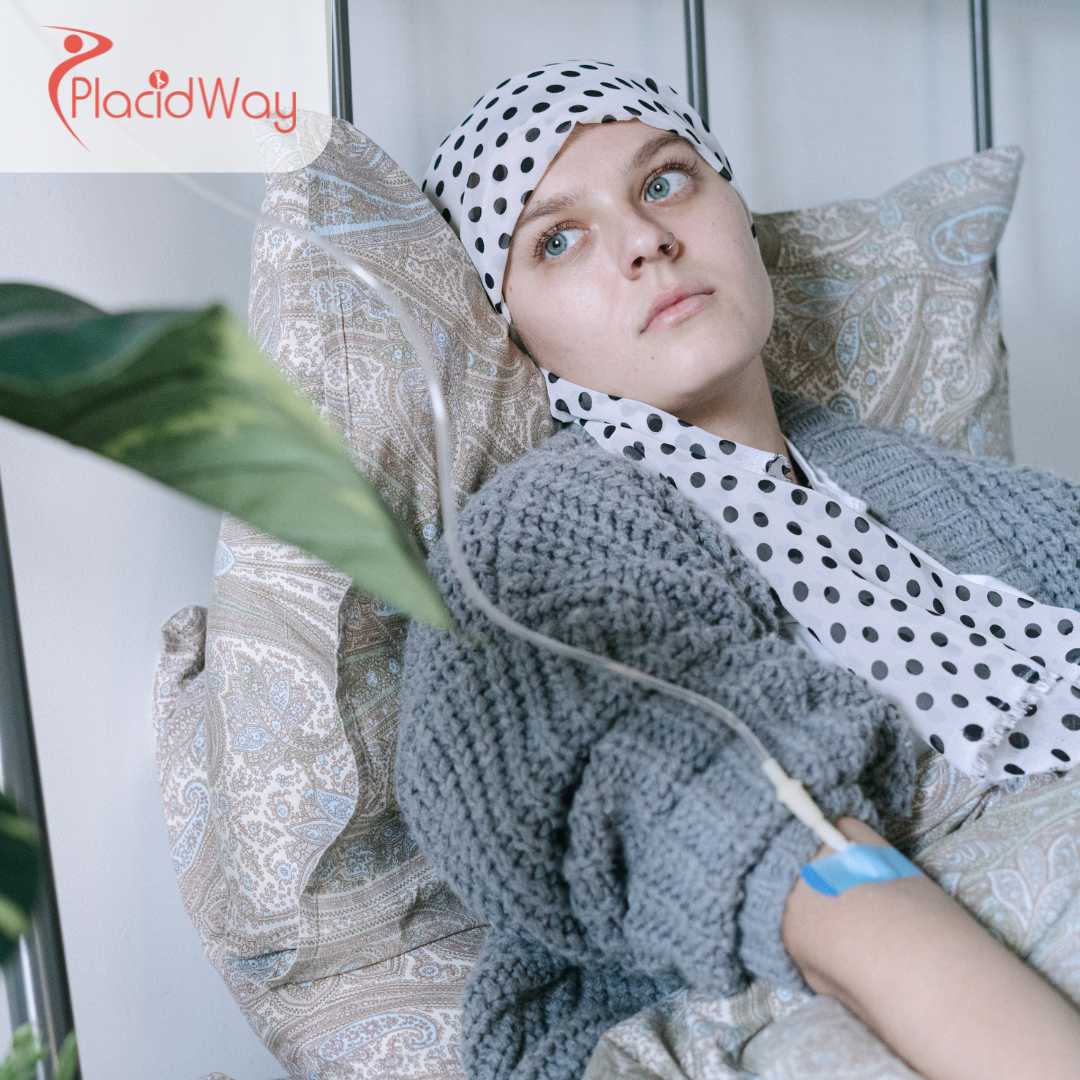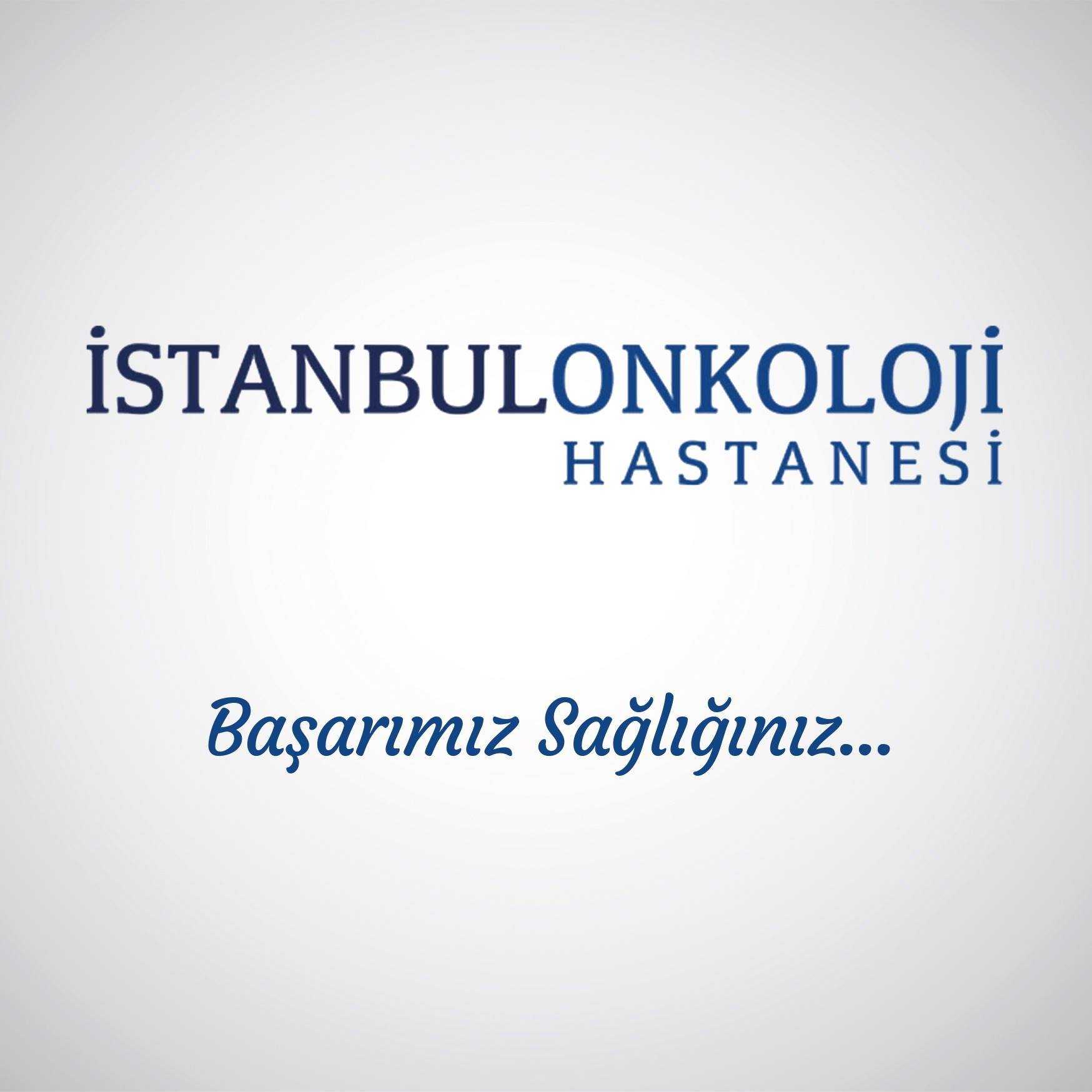Affordable Excellence: Ovarian Cancer Surgery in Turkey

Ovarian cancer can be a challenging diagnosis, but thankfully, advancements in medical science offer hope through various treatment modalities, with surgery often playing a central role. If you're exploring options for ovarian cancer treatment, you might be considering international destinations like Turkey. Turkey has emerged as a significant hub for medical tourism, attracting patients from around the globe due to its blend of advanced medical technology, experienced specialists, and competitive pricing. When it comes to ovarian cancer surgery, the effectiveness of treatment in Turkey is a common and important question. This comprehensive guide aims to shed light on the efficacy of ovarian cancer surgery in Turkey, addressing key concerns and providing detailed insights into what you can expect from the healthcare landscape there. We'll explore the factors contributing to successful outcomes, the types of surgical procedures available, and what makes Turkey a viable option for this critical treatment.
How effective is ovarian cancer surgery in Turkey?
The effectiveness of ovarian cancer surgery in Turkey is generally considered to be high, particularly in reputable hospitals with specialized gynecological oncology departments. The primary goal of surgery for ovarian cancer, whether in Turkey or elsewhere, is to remove as much of the tumor as possible. This procedure is called cytoreductive surgery or debulking surgery. Achieving "complete" or "optimal" cytoreduction, meaning no visible tumor remains or the largest remaining tumor formations do not exceed 5 mm, is crucial for improving patient outcomes and prolonging survival. Many Turkish hospitals are equipped with modern facilities and employ highly skilled surgeons who specialize in these complex procedures.
Studies and reports indicate that when ovarian cancer surgery is performed by experienced gynecological oncologists in high-volume centers, the survival rates significantly improve. Turkey has several such centers that focus on providing comprehensive cancer care, adhering to international standards. The commitment to achieving optimal debulking, coupled with subsequent systemic treatments like chemotherapy, contributes to the overall effectiveness of the treatment.
What are the success rates for ovarian cancer treatment in Turkey?
The success rates for ovarian cancer treatment are typically measured by 5-year overall survival rates, which indicate the percentage of patients who are still alive five years after their diagnosis. In Turkey, these rates are influenced by several factors, including the stage of cancer at diagnosis, the histological type of ovarian cancer, and the quality of surgical debulking.
- Localized Stage: For ovarian cancer diagnosed at a localized stage, where the cancer is confined to the ovaries, the 5-year survival rates are significantly higher, often comparable to international benchmarks.
- Regional or Distant Metastasis: As with any cancer, if the disease has spread to regional lymph nodes or distant organs, the survival rates tend to decrease. However, effective surgical debulking combined with chemotherapy can still lead to positive outcomes.
- Quality of Care: Hospitals in Turkey that are JCI-accredited (Joint Commission International) often demonstrate high standards of care, which directly impacts treatment success. These accreditations signify adherence to strict international protocols for patient safety and quality of medical services.
Many Turkish medical facilities utilize multidisciplinary teams, including oncologists, surgeons, radiologists, and pathologists, to create personalized treatment plans, aiming for the best possible outcomes for each patient.
What factors contribute to the effectiveness of ovarian cancer surgery in Turkey?
Several critical factors contribute to the effectiveness of ovarian cancer surgery in Turkey:
- Surgeon Expertise: The experience and specialization of the gynecological oncologist performing the surgery are paramount. Turkish hospitals boast many highly qualified surgeons, some with international training and extensive experience in complex ovarian cancer cases. A surgeon's ability to achieve maximal tumor removal (R0 or optimal cytoreduction) is directly linked to better patient survival.
- Advanced Medical Technology: Leading hospitals in Turkey are equipped with state-of-the-art diagnostic and surgical equipment. This includes advanced imaging technologies (PET-CT, MRI), robotic-assisted surgical systems (like the da Vinci robot for minimally invasive procedures), and sophisticated pathology labs for accurate diagnosis and staging.
- Multidisciplinary Approach: Effective ovarian cancer treatment often requires a collaborative effort from various medical specialists. Turkish hospitals frequently employ multidisciplinary tumor boards where oncologists, surgeons, radiation oncologists, and other experts discuss each patient's case to formulate the most appropriate and personalized treatment plan.
- Post-Operative Care and Adjuvant Therapies: The effectiveness of surgery is not isolated. Comprehensive post-operative care, including intensive care support, and the timely administration of adjuvant therapies like chemotherapy, targeted therapy, or immunotherapy, play a significant role in preventing recurrence and improving long-term survival.
- Hospital Infrastructure and Accreditation: Many hospitals catering to international patients in Turkey hold international accreditations, such as JCI, which ensures that they meet rigorous global standards for patient safety and quality of care. This commitment to excellence provides a foundation for effective treatment.
What types of ovarian cancer surgeries are performed in Turkey?
The type of ovarian cancer surgery performed depends on the stage and spread of the cancer, as well as the patient's overall health and desire for future fertility. In Turkey, a range of surgical procedures are available:
- Total Hysterectomy: Removal of the uterus.
- Bilateral Salpingo-Oophorectomy (BSO): Removal of both ovaries and fallopian tubes. This is a standard procedure for most ovarian cancer cases.
- Omentectomy: Removal of the omentum, a fatty tissue apron that often serves as a site for ovarian cancer spread.
- Lymphadenectomy: Removal of lymph nodes in the pelvic and para-aortic regions to check for cancer spread.
- Cytoreductive (Debulking) Surgery: This is the most crucial part of surgery for advanced ovarian cancer. It involves removing all visible tumors from the abdominal cavity, which might include parts of the bowel, spleen, diaphragm, or other affected organs. The goal is to leave no macroscopic residual disease.
- Staging Surgery: For early-stage ovarian cancer, this involves a series of procedures (BSO, hysterectomy, omentectomy, lymph node dissection, peritoneal washings) to accurately determine the extent of the disease and guide further treatment.
- Fertility-Sparing Surgery: In very select cases of early-stage ovarian cancer in younger women who wish to preserve fertility, a single ovary and fallopian tube may be preserved. This is a highly specialized decision and not suitable for all patients.
- Minimally Invasive Surgery: Laparoscopic or robotic-assisted surgery may be used for some early-stage cases or for diagnostic purposes, leading to smaller incisions, less pain, and faster recovery. However, for advanced ovarian cancer, open surgery is generally preferred for optimal debulking.
Turkish surgical teams are adept at performing these complex procedures, aiming for the most comprehensive tumor removal possible.
Are Turkish surgeons experienced in ovarian cancer surgery?
Turkey has invested significantly in its healthcare infrastructure and medical education, leading to a pool of highly qualified and experienced surgeons. Many Turkish gynecological oncologists have pursued specialized training both domestically and internationally, often in leading medical centers in Europe and the United States.
The emphasis on complex oncological surgeries, particularly in high-volume hospitals, means that these surgeons regularly perform intricate procedures for ovarian cancer. Their expertise is critical in achieving optimal cytoreduction, which is a major determinant of success in ovarian cancer treatment. Patients often find that these surgeons are not only skilled but also compassionate, providing detailed explanations and personalized care.
What are the typical recovery times after ovarian cancer surgery in Turkey?
Recovery time after ovarian cancer surgery can vary significantly depending on the extent of the surgery (e.g., minimally invasive vs. extensive open debulking), the patient's general health, and whether complications arise. Generally, patients can expect the following:
- Hospital Stay: For extensive open surgeries, a hospital stay of 5-10 days is common. For minimally invasive procedures, it might be shorter.
- Initial Recovery (First 2-4 Weeks): During this period, patients will experience pain, fatigue, and discomfort. They will gradually resume light activities. Drains and catheters may be in place initially.
- Gradual Return to Activity (1-3 Months): Most patients can return to light work or daily routines within 4-6 weeks, but strenuous activities and heavy lifting should be avoided for at least 8 weeks, or as advised by the surgeon.
- Full Recovery: Complete recovery and return to normal energy levels can take several months, especially if chemotherapy or radiation therapy follows surgery. Patients will have follow-up appointments to monitor their healing and overall progress.
Turkish medical teams provide detailed post-operative instructions and support, often including rehabilitation and nutritional guidance, to facilitate a smooth recovery.
What is the cost of ovarian cancer surgery in Turkey compared to other countries?
One of the most attractive aspects of seeking ovarian cancer surgery in Turkey for international patients is the cost-effectiveness. The prices for medical procedures in Turkey are considerably lower compared to countries like the United States, Canada, the UK, and many Western European nations, often without a compromise on the quality of care. The overall cost of ovarian cancer treatment, which includes surgery, hospital stay, and initial consultations, typically ranges from approximately $10,000 to $20,000, but this can vary based on the complexity of the case, the specific hospital, and the surgeon's fees.
The affordability is primarily due to several factors:
- Lower Cost of Living and Operating Expenses: Turkey has a lower cost of living and, consequently, lower overhead costs for hospitals and medical staff compared to more developed economies.
- Favorable Exchange Rates: For patients from countries with stronger currencies, the exchange rate can significantly reduce the effective cost of treatment.
- Government Support and Competition: The Turkish government actively promotes medical tourism, and the competitive landscape among private hospitals helps keep prices reasonable.
It's important for patients to get a detailed quote that covers all aspects of the treatment plan, including pre-operative diagnostics, surgery, hospital stay, post-operative care, and any necessary follow-up treatments.
What diagnostic tests are performed for ovarian cancer in Turkey?
Accurate diagnosis and staging are crucial for effective ovarian cancer treatment. Turkish hospitals utilize a comprehensive range of diagnostic tests:
- Pelvic Examination: A physical exam to check for any abnormalities in the pelvic area.
- Blood Tests:
- CA-125 Test: Measures the level of CA-125, a protein that can be elevated in women with ovarian cancer. While not definitive on its own, it's a key marker.
- Other Blood Tests: May include complete blood count (CBC), liver and kidney function tests, and other tumor markers if indicated.
- Imaging Scans:
- Transvaginal Ultrasound (TVUS) or Pelvic Ultrasound: Often the first imaging test to visualize the ovaries and detect any masses or cysts.
- CT (Computed Tomography) Scan: Used to assess the extent of cancer spread within the abdomen and pelvis, and to other parts of the body.
- MRI (Magnetic Resonance Imaging): Provides more detailed images of soft tissues and can help differentiate between benign and malignant masses.
- PET-CT (Positron Emission Tomography-Computed Tomography) Scan: Used to detect cancer cells throughout the body and assess metabolic activity of tumors, particularly helpful in identifying distant metastases.
- Biopsy: The definitive diagnosis of ovarian cancer is made through a biopsy, where a tissue sample from the suspected tumor is taken and examined under a microscope by a pathologist. This can be done via laparoscopy, during surgery, or sometimes through a CT-guided needle biopsy.
- Genetic Testing: For some patients, especially those with a family history of ovarian or breast cancer, genetic testing for BRCA1 and BRCA2 mutations may be recommended, as these genes are linked to an increased risk of ovarian cancer.
How do Turkish hospitals ensure patient safety during ovarian cancer surgery?
Patient safety is a top priority in leading Turkish hospitals, especially for complex procedures like ovarian cancer surgery. Several measures are in place to ensure patient safety:
- International Accreditations: Many hospitals popular with international patients are accredited by organizations like Joint Commission International (JCI). This accreditation signifies that the hospital meets rigorous global standards for patient care, safety, and quality management.
- Strict Surgical Protocols: Hospitals adhere to strict pre-operative, intra-operative, and post-operative protocols, including sterile environments, advanced anesthesia monitoring, and clear communication among the surgical team.
- Infection Control: Comprehensive infection control programs, including strict hygiene practices, antibiotic prophylaxis, and surveillance of healthcare-associated infections, are implemented to minimize risks.
- Experienced Medical Teams: Anesthesia teams, surgical nurses, and support staff are highly trained and experienced in managing complex surgical cases, contributing to smoother procedures and better patient outcomes.
- Modern Equipment and Technology: State-of-the-art operating theaters, monitoring equipment, and surgical tools enhance precision and safety during surgery.
- Emergency Preparedness: Hospitals have well-defined protocols and resources for managing potential surgical complications or medical emergencies.
- Patient-Centered Care: Emphasis is placed on clear communication with the patient and their family, ensuring they are well-informed about the procedure, potential risks, and recovery expectations.
What post-operative care is provided after ovarian cancer surgery in Turkey?
Post-operative care is a critical component of successful ovarian cancer treatment in Turkey. The care typically includes:
- Pain Management: Patients receive appropriate pain medication to ensure comfort during recovery.
- Wound Care: Regular monitoring and care of surgical incisions to prevent infection and promote healing.
- Monitoring for Complications: Close observation for potential complications such as bleeding, infection, blood clots, or issues with bowel function.
- Early Mobilization: Patients are encouraged to get out of bed and move around as soon as medically safe to prevent complications like pneumonia and deep vein thrombosis.
- Nutritional Support: Depending on the extent of surgery, patients may initially receive intravenous fluids, gradually progressing to a soft diet and then a regular diet. Nutritional counseling may also be provided.
- Drainage and Catheter Management: If surgical drains or urinary catheters are placed during surgery, they are managed and removed when appropriate.
- Physical Therapy/Rehabilitation: For extensive surgeries, some level of physical therapy might be initiated to help with recovery of strength and mobility.
- Planning for Adjuvant Therapy: Once the patient is stable and has recovered sufficiently from surgery, the oncology team will develop a plan for any necessary adjuvant treatments, such as chemotherapy, targeted therapy, or immunotherapy, which are often crucial for preventing recurrence.
- Follow-up Appointments: Regular follow-up visits are scheduled to monitor recovery, assess for any signs of recurrence, and manage long-term side effects.
Are there patient testimonials or reviews for ovarian cancer surgery in Turkey?
Many patients who have undergone ovarian cancer surgery in Turkey share their experiences online. These testimonials and reviews can be found on:
- Medical Tourism Platforms: Websites like Bookimed, Flymedi, MediGence, and WhatClinic often feature patient reviews, ratings, and success stories for various treatments, including ovarian cancer surgery, in Turkish hospitals.
- Hospital Websites: Leading Turkish hospitals frequently showcase patient testimonials on their official websites.
- Online Forums and Communities: Health-related forums and social media groups where patients discuss their medical journeys can also be a source of firsthand accounts.
These reviews often highlight several aspects:
- Quality of Medical Care: Many patients praise the high standards of medical care, advanced facilities, and the expertise of surgeons and medical staff.
- Affordability: The significant cost savings compared to their home countries are a frequently mentioned benefit.
- Patient Support: Positive comments are often made about the comprehensive support services, including interpreters, personalized care, and assistance with logistics.
- Recovery Experience: Patients often describe comfortable recovery environments and attentive post-operative care.
While testimonials can be helpful, it's always advisable to consult with a medical professional and conduct thorough research to make an informed decision.
What are the qualifications of oncologists and gynecological oncologists in Turkey?
Oncologists and especially gynecological oncologists in Turkey are highly qualified medical professionals. Their qualifications generally include:
- Medical Education: Completion of a rigorous medical degree from a recognized university in Turkey or abroad.
- Residency Training: Extensive residency training in Obstetrics and Gynecology, followed by further specialization in Oncology or Gynecological Oncology. This involves several years of intensive practical and theoretical training.
- Fellowships: Many leading gynecological oncologists complete specialized fellowships in gynecological oncology, which provides in-depth training in the surgical and medical management of female reproductive cancers.
- Board Certifications: They are typically certified by relevant medical boards in Turkey, ensuring they meet national standards of expertise.
- International Experience: A significant number of Turkish specialists have gained international experience through training, conferences, and collaborations with renowned medical institutions globally. This exposure keeps them updated on the latest advancements and best practices in cancer care.
- Continuous Professional Development: Like medical professionals worldwide, Turkish oncologists engage in continuous professional development, attending conferences, workshops, and staying current with medical literature to enhance their skills and knowledge.
Are there language barriers when seeking ovarian cancer treatment in Turkey?
For international patients, language is a common concern when seeking medical treatment abroad. However, in Turkey, particularly at hospitals and clinics that cater to medical tourism, language barriers are largely mitigated:
- English-Speaking Staff: A significant number of doctors, nurses, and administrative staff in major private hospitals are fluent in English.
- Professional Interpreters: Most leading medical facilities provide professional medical interpreters who can facilitate communication between patients and their healthcare providers. These interpreters are often available for various languages, not just English.
- Patient Coordinators: Many hospitals or medical tourism agencies assign dedicated patient coordinators who assist international patients with all aspects of their visit, from initial inquiries and appointments to post-treatment follow-ups, and often serve as a communication bridge.
While it's always good to confirm language support with your chosen hospital or medical tourism facilitator, generally, you can expect smooth communication throughout your treatment journey in Turkey.
What are the risks associated with ovarian cancer surgery?
Like any major surgical procedure, ovarian cancer surgery carries certain risks. These risks are carefully discussed with the patient before the operation. Potential risks include:
- Infection: Risk of infection at the surgical site or within the abdominal cavity.
- Bleeding: Excessive blood loss during or after surgery, potentially requiring blood transfusions.
- Damage to Nearby Organs: During extensive debulking, there is a risk of injury to surrounding organs such as the bladder, bowel, ureters, or major blood vessels.
- Blood Clots: Formation of blood clots in the legs (deep vein thrombosis, DVT) or lungs (pulmonary embolism, PE). Measures are taken to prevent these, such as compression stockings and blood thinners.
- Anesthesia Complications: Reactions to anesthesia, including allergic reactions, respiratory problems, or heart issues.
- Bowel Obstruction: Scar tissue (adhesions) can form after surgery, potentially leading to a bowel obstruction in the future.
- Lymphedema: If many lymph nodes are removed, swelling in the legs (lymphedema) can occur, although this is less common with ovarian cancer surgery compared to some other cancer surgeries.
- Incomplete Tumor Removal: Despite the surgeon's best efforts, it may not be possible to remove all visible cancer, especially in advanced cases.
- Nerve Damage: Rare, but possible, leading to numbness or weakness.
Experienced surgical teams in Turkey take all necessary precautions to minimize these risks and manage any complications that may arise.
Can ovarian cancer surgery in Turkey be combined with other treatments?
Ovarian cancer treatment often involves a multimodal approach, where surgery is combined with other therapies. In Turkey, as in other advanced healthcare systems, this combined treatment strategy is standard:
- Neoadjuvant Chemotherapy (NAC) followed by Interval Debulking Surgery: For some patients with advanced ovarian cancer, chemotherapy may be given before surgery to shrink the tumors, making them easier to remove. This is known as neoadjuvant chemotherapy. After a few cycles, interval debulking surgery is performed.
- Adjuvant Chemotherapy: After surgery, most patients with ovarian cancer receive chemotherapy to destroy any remaining cancer cells and reduce the risk of recurrence. This is called adjuvant chemotherapy.
- Targeted Therapy: Newer drugs that specifically target cancer cells without harming normal cells may be used in combination with or after chemotherapy, especially for certain genetic mutations (e.g., PARP inhibitors for BRCA mutations).
- Immunotherapy: In some cases, immunotherapy, which boosts the body's immune system to fight cancer, might be part of the treatment plan, although its role in ovarian cancer is still evolving.
- Radiation Therapy: While less common for primary ovarian cancer, radiation therapy might be used in specific situations, such as to treat localized areas of recurrence or to manage symptoms.
The multidisciplinary teams in Turkish hospitals meticulously plan these combined treatments, tailoring them to the individual patient's needs and the characteristics of their cancer, to maximize effectiveness and improve long-term outcomes.
If you're considering ovarian cancer surgery, exploring your options with PlacidWay can provide access to top-tier medical facilities and experienced specialists in Turkey, ensuring you receive comprehensive and effective care tailored to your specific needs.


.png)




.png)









Share this listing